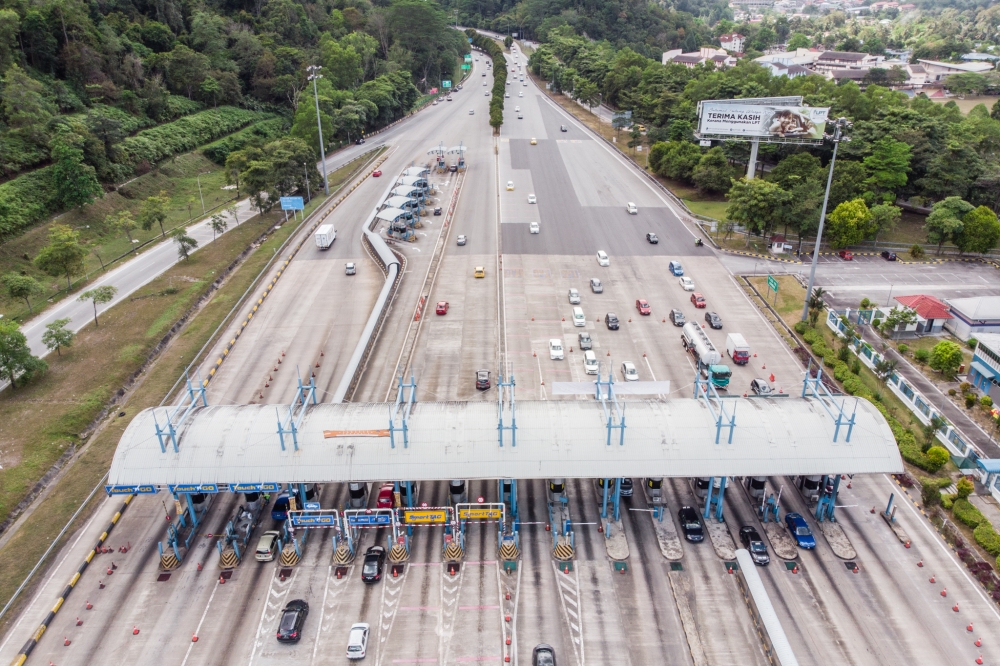KUALA LUMPUR, May 8 — The second nationwide movement control order or MCO 2.0 in Malaysia was not a failure as the country succeeded in avoiding a US institute’s predictions of daily 20,000 new Covid-19 cases, Health director-general Tan Sri Dr Noor Hisham Abdullah stressed today.
With parts of Malaysia now under the third edition of MCO or MCO 3.0 and with some others coming under the same restrictions in the coming days, Dr Noor Hisham today sought to dispel the idea that the previous MCO 2.0 was not effective.
Instead, Dr Noor Hisham touted the success of MCO 2.0.
In comparison to the strict MCO 1.0 nationwide which he acknowledged may have had overly-tight restrictions where only essential services were allowed even in “green” states that had no new Covid-19 cases, Dr Noor Hisham said the MCO 2.0 took a different approach in order to balance between life and livelihood, and between health and economy.
Under MCO 2.0 where the economic sector was largely allowed to operate but with restrictions on the social, education, sports and religious sectors, Dr Noor Hisham said it had worked in bringing down the number of new Covid-19 cases recorded daily.
“So let’s see whether MCO 2.0 succeeded or not. We hear there are those who say MCO 2.0 has failed, but actually it did not fail,” he said in a press conference aired live this evening.
Noting that Malaysia had peaked at a record high of 5,728 daily new cases on January 30 this year, Dr Noor Hisham said that the daily number of new Covid-19 cases in Malaysia may have hit five-figure sums such as 10,000 or 20,000 if Malaysia had not implemented the MCO 2.0 on January 13.
“The prediction or report by the US’ Institute for Health Metrics and Evaluation had predicted that Malaysia would record 20,000 (daily) cases in the early week of March, but it is clear we did not hit 20,000 (daily) cases,” he said.
Following MCO 2.0’s imposition on January 13, Dr Noor Hisham noted that the daily number of Covid-19 cases had peaked at the end of January and that such numbers had continued to fall for six weeks.
Will Malaysia hit 6k or 7k daily new cases?
After the MCO 2.0 was fully lifted in Malaysia by March 4, Dr Noor Hisham said the authorities had allowed the reopening of the social, education, sports and religious sectors with the condition of compliance to SOPs, but noted that the subsequent increase in daily cases indicate that there was a lack of compliance which he suggested could be due to “mental fatigue” to comply.
He said Malaysia’s neighbouring countries had also seen most of their cases increasing in March and April, with some saying that this could be due to new variants of Covid-19 virus that have been detected.
Dr Noor Hisham also said that Malaysia was actually recording a faster increase in the daily new Covid-19 cases than expected, even exceeding the forecast figures for when there is no compliance to Covid-19 SOPs.
“We predicted on May 29 we will record 5,000 cases, and in mid-May which is the Raya season, we may record 3,000 cases,” he said of the Health Ministry’s prediction.
But what has actually happened was that Malaysia had hit such predicted daily figures earlier than forecasted.
“However we saw 3,000 cases in early May, meaning it is two weeks earlier than our prediction. And now today, there are 4,519 cases, we haven’t reached mid-May,” he said, with today being just the eighth day of May or just barely more than the first week of May.
In such a situation, Dr Noor Hisham gave a revised prediction of Malaysia possibly recording 5,000 daily new cases by mid-May, but suggested that this may not necessarily have to materialise if sufficient efforts are taken.
“Means we predict there will be 5,000 cases in mid-May, and end of May it may increase again, so more than 5,000, whether 6,000 or 7,000 depends on us. It’s up to us to break the Covid-19 chain, it’s up to us to take drastic actions to curb the Covid-19 infection,” he said.
Malaysia has not recorded a daily number of new Covid-19 cases higher than the 5,728 figure on January 30 this year.
While saying that Malaysia is currently continuing its third wave of infections instead of having entered the fourth wave, Dr Noor Hisham in the same press conference also said it is “still not too late” to fight the pandemic as Malaysia has yet to fail and merely needs to continue on in the fight.

















.jpg)


